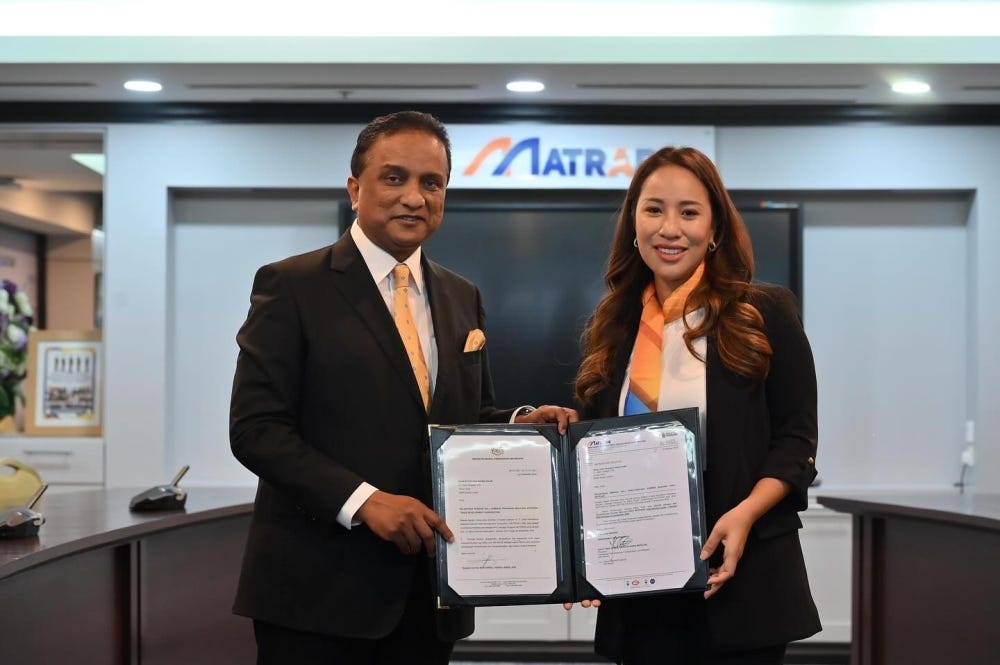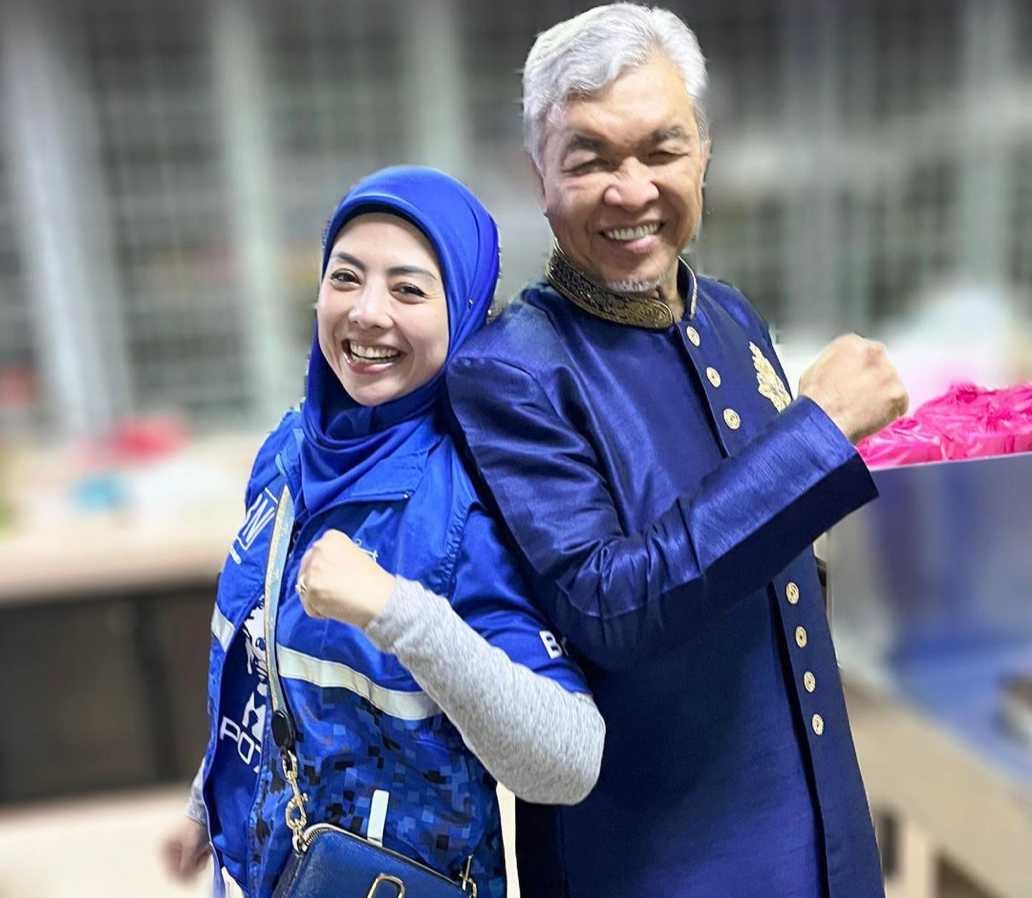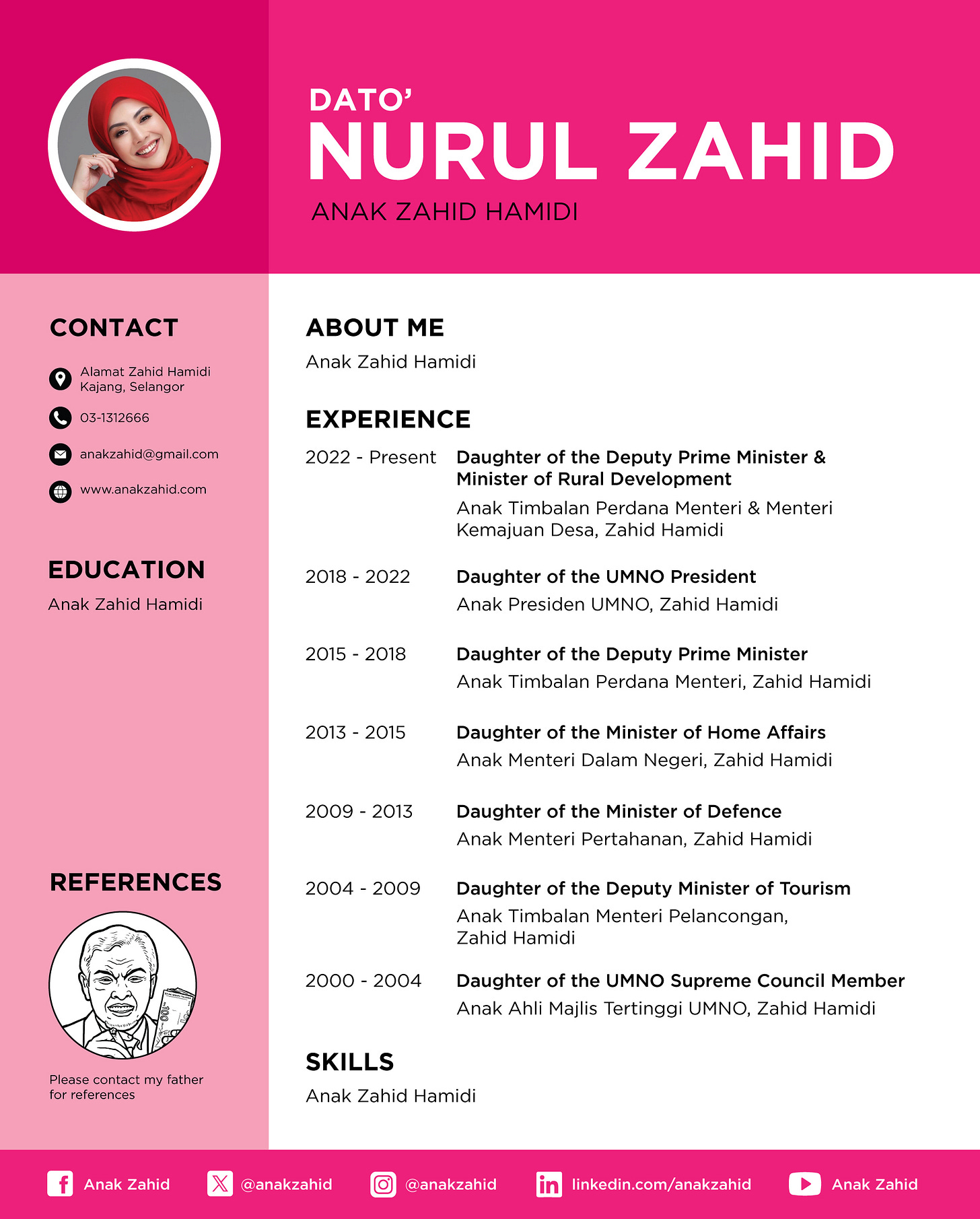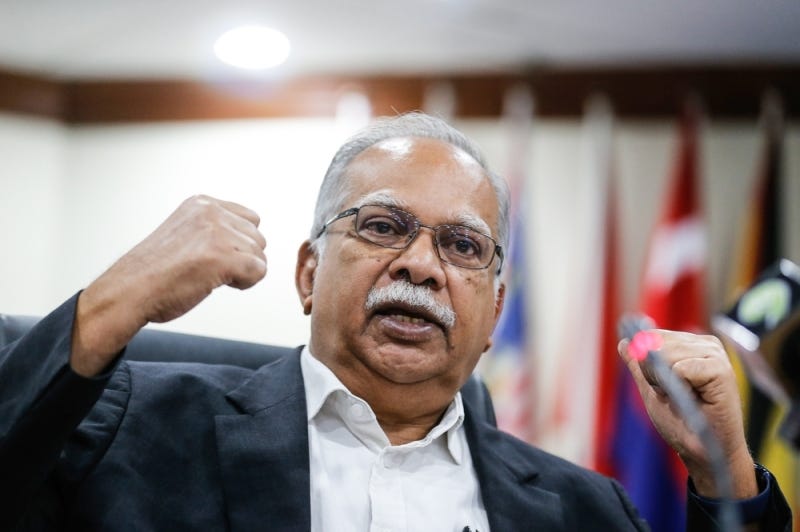Guest Editorial: Nepotism creeping back: The unity government’s broken reform promises
Prof. Dr. Ramasamy
Everybody asking will we see Nurul make an appearance in Davos?
Sri Lanka once became infamous for its “family planning” — not in the context of population control but for the deliberate placement of political leaders’ relatives in positions of power.
Today, Malaysia risks earning a similar reputation as high-profile appointments of children and relatives of political leaders resurface, challenging the government’s pledge of reform.
Prime Minister Anwar Ibrahim’s daughter, Nurul Izzah, was recently appointed to head two think tanks—Socio-Economic Research Initiative (SERI) and Polity.
Meanwhile, former Prime Minister Najib Razak’s daughter, Nooryana Najwa, was appointed as a director for the Malaysian External Trade Development Corporation (MATRADE).
Nooryana Najwa Najib presented her letter of appointment for Matrade board
Additionally, Deputy Prime Minister Ahmad Zahid Hamidi’s daughter, Nurul hidayah, secured a position as a board member of Universiti Putra Malaysia (UPM).
These appointments starkly contradict the reform agenda touted by the current administration, raising concerns over nepotism, cronyism, and favoritism.
While the qualifications of these individuals are not entirely in question, the lack of transparency in their selection processes fuels public skepticism.
Were these roles publicly advertised? Were other, potentially more qualified candidates considered? For a government that rose to power on promises of transparency, accountability, and meritocracy, these developments reflect poorly on its commitment to reform.
The Key Issues at Stake:
1. The Erosion of Meritocracy
The appointments appear to undermine the principle that positions of influence and responsibility should be awarded based on merit and capability.
With thousands of highly qualified Malaysians, what extraordinary qualifications set these individuals apart? Institutions like UPM and MATRADE, funded by taxpayers, owe the public an explanation regarding these choices.
2. Double Standards in Governance
Anwar Ibrahim’s government, which came to power on a wave of optimism for reform and the promise to eradicate nepotism, has failed to uphold these principles.
By appointing family members, it risks mirroring the same “nefarious practices” it once condemned.
3. Lack of Transparency
The absence of open recruitment processes exacerbates the perception of favoritism. Without public advertisements or clear criteria for selection, such appointments erode trust in the government and public institutions.
4. Hypocrisy in Leadership
The Prime Minister’s promise of a “unity government” appears more aligned with familial unity than national reform. These actions not only weaken public confidence but also tarnish the reformist image of the administration.
Implications
The Madani government, once seen as a beacon of hope for reforms, now faces mounting criticism for perpetuating the very practices it vowed to eliminate.
The rhetoric of change and progress has been replaced by actions that recall the entrenched systems of nepotism and cronyism from previous administrations.
Conclusion:
The appointments of political leaders’ family members signal a worrying return to old, discredited practices. While these individuals may have academic credentials, the lack of a transparent selection process and the apparent disregard for merit-based competition reveal the government’s faltering commitment to reform. If left unaddressed, these actions will permanently stain the administration’s credibility and undo the public goodwill it once enjoyed.
The Madani government, heralded as an agent of change, risks becoming a reflection of the very systems it promised to dismantle. Only through bold action and unwavering accountability can it restore faith in its ability to lead Malaysia towards true reform.
Prof. Dr. P Ramasamy
Malaysian, 75 years of age. Former professor of political economy UKM. Former Senior Research Fellow, ISEAS. Former Visiting Professor, University Kassel, Germany. Deputy Chief Minister Penang, 2008-2023. Former member of parliament, 2008-2013. Three terms Perai state assemblyman. Former Chairman of Penang Hindu Endowments Board. Involved in peace talks in Aceh and Sri Lanka. International peace consultant. Chairman of political party Urimai.
Subscribe Below:








So not a single non malah chosen for even one position.. Malays have gone sicko.. For how long before country goes down the drain, like Mynmar, Bangladesh. This Anwar must go.